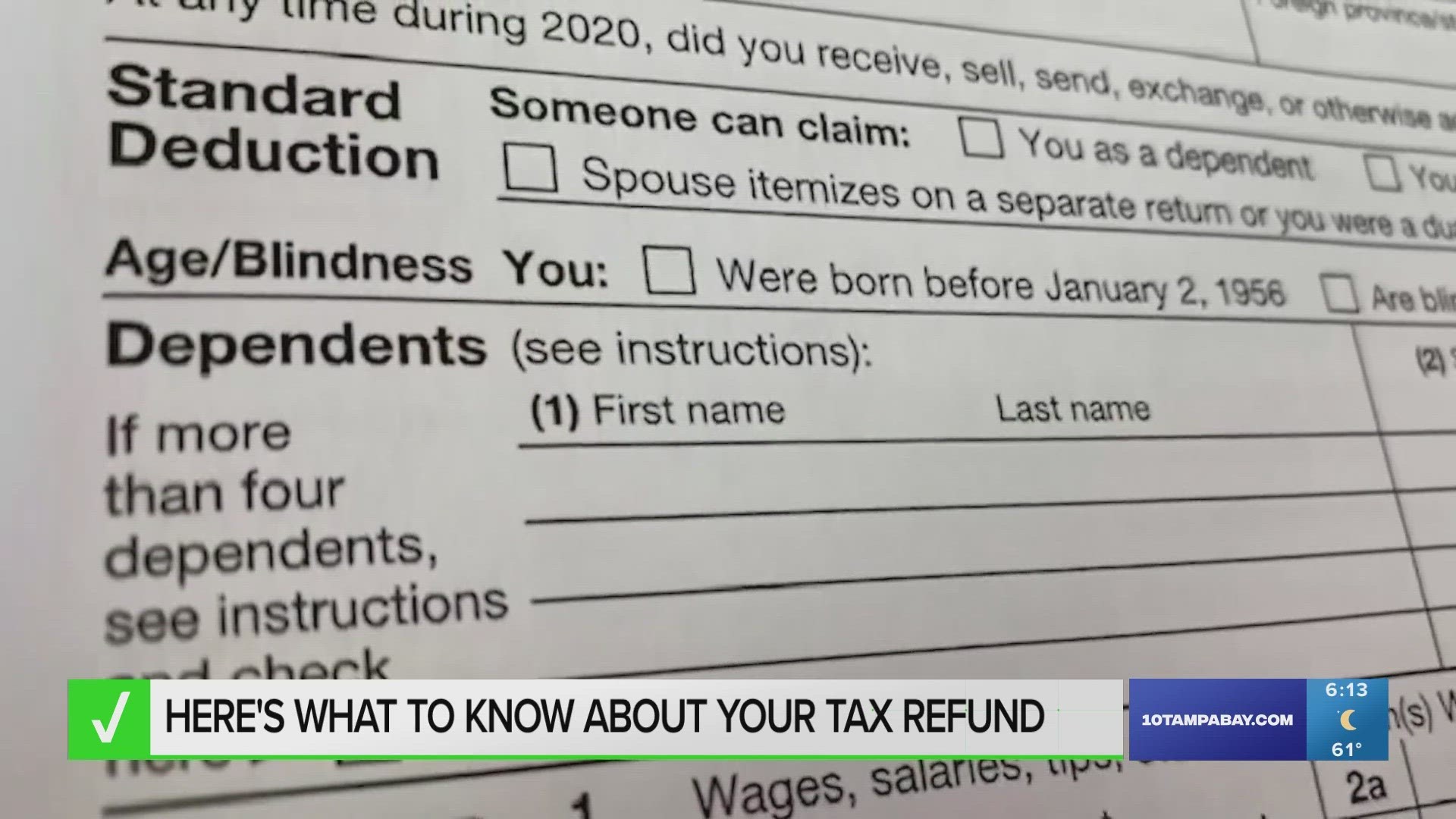The 2024 tax filing season officially began on Monday, Jan. 29, with returns due on April 15.
For many filers, the top questions include how long it will take to get their refund. More than half of Americans plan to file their taxes early to get their refund quickly, according to a survey from Intuit Credit Karma.
Roughly three in four Americans say they expect to receive a tax refund this year, Credit Karma found.
VERIFY is compiling answers to your most asked tax questions.
THE SOURCES
- Internal Revenue Service (IRS)
- Mark Steber, Jackson Hewitt chief tax information officer
- AARP Foundation
- TurboTax
- H&R Block
WHAT WE FOUND
The average refund in 2023 was just shy of $3,200. The IRS says increased funding from the Inflation Reduction Act will help the agency more efficiently issue refunds this year.
Mark Steber, chief tax information officer at Jackson Hewitt, said there are bigger benefits to filing earlier than getting your refund sooner.
“If you file early, you lock up your data with the IRS, and that's important in this day and age of data breaches, your personal information out on the dark web, and a lot of bad people in the system,” Steber told 10 Tampa Bay. “If you file first, that schemer who bought your data on the dark web can't file in front of you and steal your refund.”
If you file early and owe money, Steber said that also gives you more time to pay it.
When will I get my refund?
Most taxpayers will receive their refunds within 21 days of filing, according to the IRS. But it’s not a guarantee.
The 21-day turnaround also only applies if you file your taxes electronically, as paper returns can take longer to be processed.
“The IRS cautions taxpayers not to rely on receiving a refund by a certain date, especially when making major purchases or paying bills,” the agency said. “Some returns may require additional review and may take longer.”
What’s the status of my refund?
You can track the status of your return through the ‘Where’s My Refund?’ tool on the IRS website or through the IRS2Go app.
The agency says it has updated its refund tracking tool with more information about a taxpayer’s refund. Now the IRS will be able to show taxpayers if additional information is needed with their return and other details.
Will my refund be bigger in 2024?
Inflation could mean a bigger refund.
Some taxpayers could receive up to 10 percent more in refunds this year, Steber said, because the IRS adjusted its tax brackets for inflation.
“It depends on whether your overall taxable income kept pace with the inflationary adjustments that the IRS makes every year to keep it fair and equal,” he said.
The median worker saw their earnings increase about 5.5 percent in 2023, according to the Bureau of Labor Statistics, which is below the 7.1 percent inflation adjustment adopted by the IRS for many tax provisions last year.
What about the child tax credit?
Lawmakers in Washington are working on a bipartisan deal to expand the Child Tax Credit. The deal could mean a more generous refund for millions of parents.
But Congress has yet to fully pass it. If passed, it become retroactive.
Steber said you should not wait on the measure to pass in Congress to file your taxes.
Am I eligible for other credits?
Steber said the biggest mistake he sees taxpayers make is not taking advantage of all available tax credits.
“One in five people leave off the earned income credit every year,” he said. “If you leave it off it stays off until you fix it.”
Homeowners who invest in clean vehicles or home energy or put money into retirement savings can claim credits for doing so.
Can I file my taxes for free?
IRS Free File, a federal program that partners with outside providers, offers free online tax preparation and filing software. Any taxpayer or family whose adjusted gross income (AGI) was $79,000 or less in 2023 is eligible for IRS Free File.
An IRS pilot program launching in 2024 will also allow some taxpayers in 12 states to file their taxes for free directly to the government. This is separate from the existing Free File program.
The Direct File pilot is rolling out in phases and is not available to the general public yet, but it is “expected to be more widely available in mid-March,” the IRS says.
According to the IRS, certain taxpayers in these 12 states will be able to participate in the pilot:
- Arizona
- California
- Florida
- Massachusetts
- Nevada
- New Hampshire
- New York
- South Dakota
- Tennessee
- Texas
- Washington state
- Wyoming
People can go to the IRS Direct File website to check their eligibility for the pilot program and sign up to be notified when it’s open for them.
What if I need more time?
You can request an extension if you more time to file your taxes. Federal tax returns are due April 15 but an extension will give you until mid-October to file your returns.

